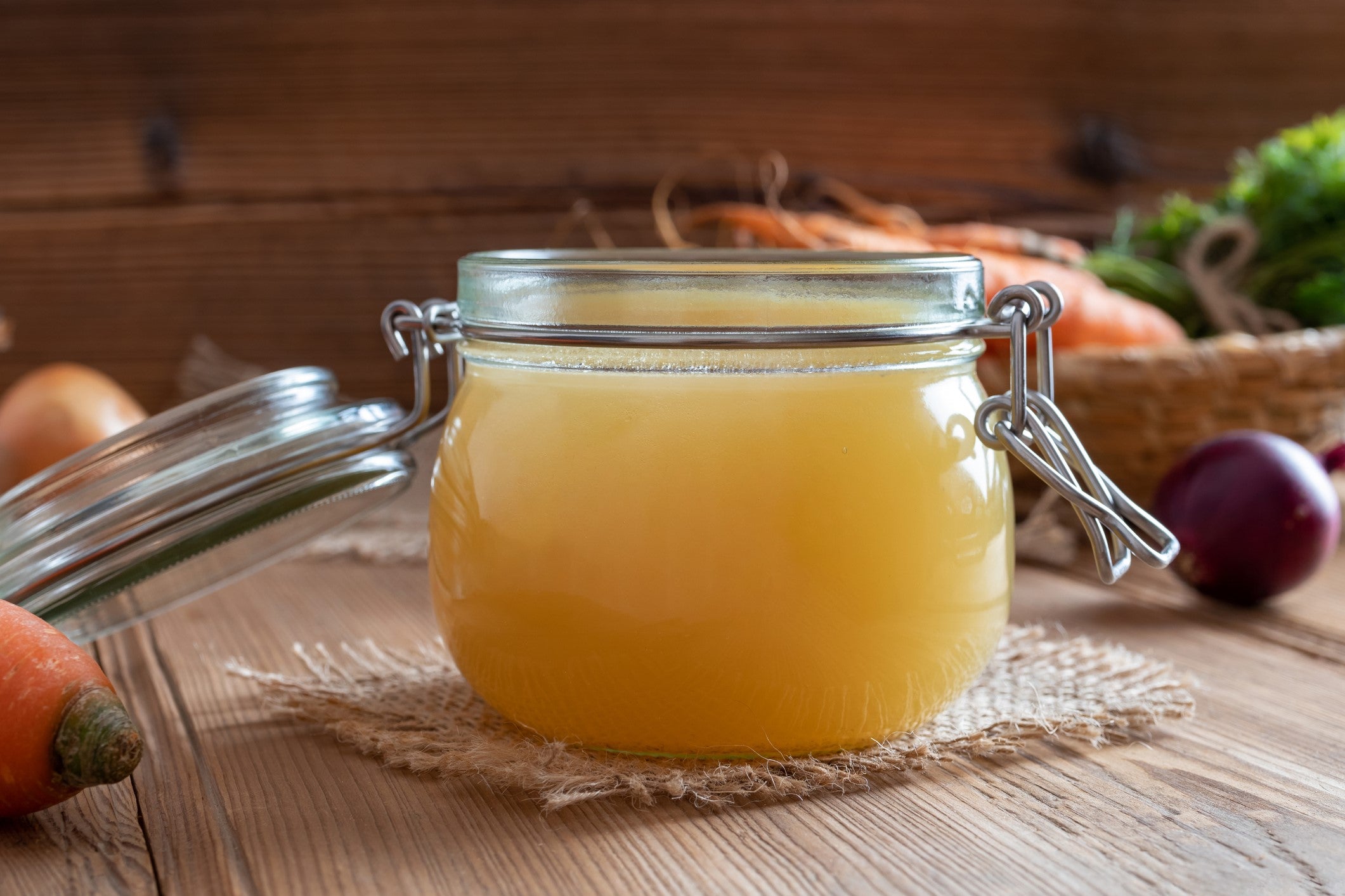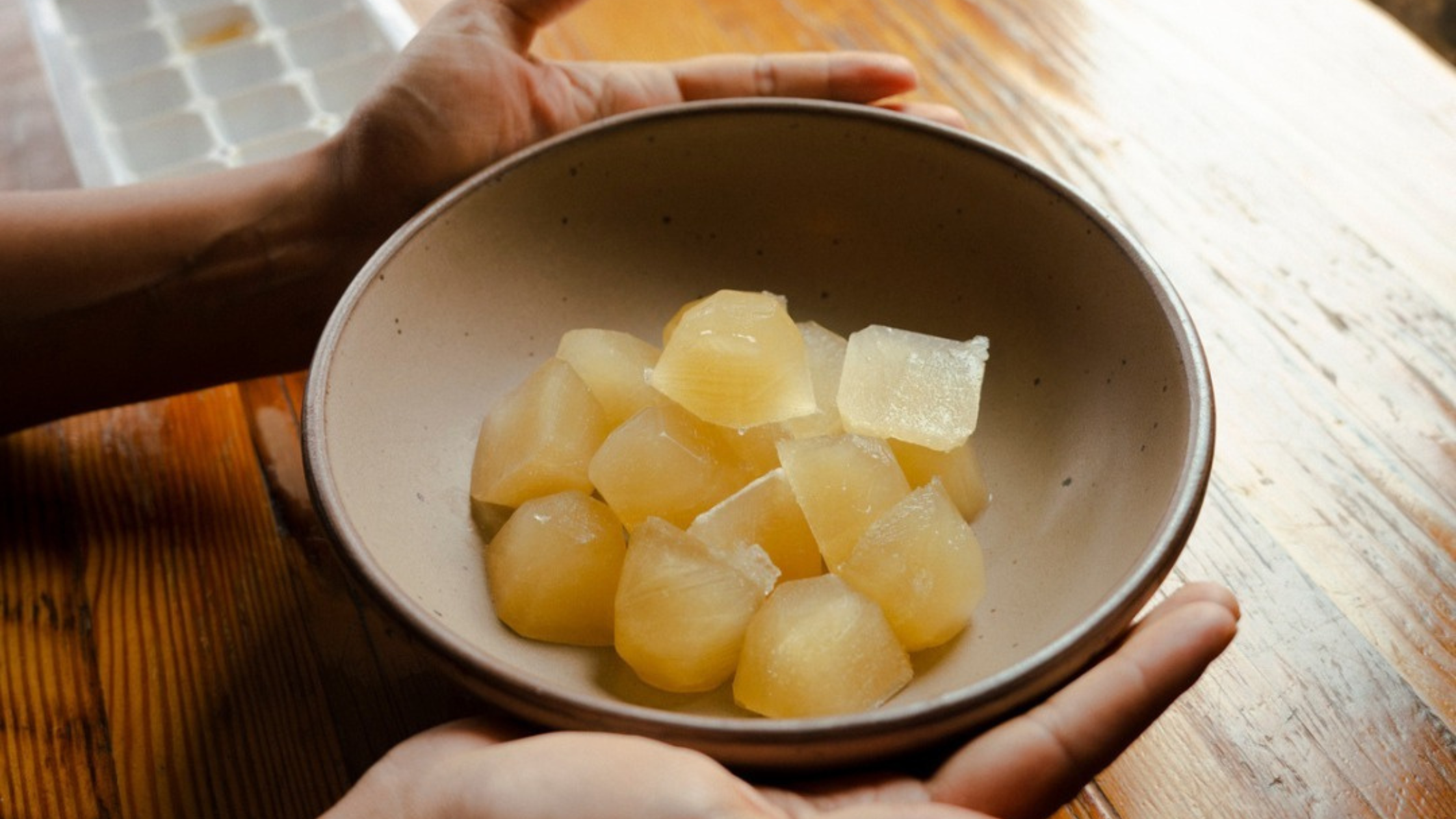5 Simple Recipes Using Chicken Bone Broth for Babies
5 Simple Recipes Using Chicken Bone Broth for Babies
Blog Article
The Importance of Healthy Food: Why Bone Broth Is a Terrific Selection for Infants
When it pertains to your infant's nutrition, every selection matters. Bone broth attracts attention as a nutrient-dense choice, supplying essential vitamins and minerals that support development and growth. Its abundant make-up not only aids digestion but additionally boosts the body immune system. Comprehending how to integrate this functional food into your infant's diet can set the phase for healthy eating routines. What are the finest ways to present bone broth to your little one?
Nutritional Conveniences of Bone Broth for Newborns
When you introduce bone broth to your infant's diet, you're giving a nutrient-dense food that offers numerous health advantages. Packed with essential minerals and vitamins, bone broth has calcium, magnesium, and phosphorus, which sustain your child's expanding bones. It's also abundant in collagen, aiding in the advancement of healthy and balanced skin, joints, and connective cells.
In addition, bone broth is an outstanding resource of amino acids like glycine and proline, which play a significant duty in general development and muscular tissue growth. These nutrients assist promote a strong immune system, establishing a solid structure for your infant's health.
Furthermore, bone broth is simple to absorb, making it a gentle alternative for your child. By integrating this wholesome food into their dishes, you're guaranteeing they receive crucial nutrients essential for their general well-being. So, go on and make bone broth a staple in your baby's diet regimen!
Exactly How Bone Broth Supports Food Digestion
Bone broth is loaded with vital nutrients that can really profit your child's food digestion. It advertises digestive tract health and assists with nutrient absorption, making it an excellent enhancement to their diet plan. By incorporating bone broth, you're setting the stage for a much healthier digestive system.
Nutrient-Rich Structure
One of the most nutrient-rich foods you can present to your infant's diet regimen is bone broth, which is packed with necessary minerals and amino acids that support healthy digestion. Rich in collagen, bone broth helps strengthen your baby's gut lining, making it easier for their body to absorb nutrients. By including bone broth right into your infant's meals, you're providing them a wholesome food that nurtures their digestive system effectively.
Advertises Intestine Health And Wellness
As you present bone broth into your infant's diet regimen, you'll locate it not just nurtures yet likewise promotes digestive tract wellness successfully. Rich in gelatin, bone broth helps soothe the digestive system, minimizing inflammation and supporting a healthy and balanced digestive tract lining. This is essential for babies, as a well balanced gut setting lays the foundation for overall wellness. Furthermore, the amino acids found in bone broth, such as glycine, help in digestion and can assist avoid usual stomach troubles. By integrating this nourishing fluid, you're providing your child with vital nutrients that contribute to a thriving digestion system. Ultimately, a healthy and balanced intestine can influence everything from resistance to mood, making bone broth an outstanding choice for your youngster.
Aids Nutrient Absorption
Introducing bone broth not just supports intestine health and wellness however likewise plays a considerable role in assisting vitamins and mineral absorption. When you provide your infant bone broth, you're providing an abundant source of minerals and amino acids that improve their gastrointestinal procedures. The gelatin in bone broth aids to relieve the intestine lining, boosting its capability to soak up necessary nutrients.
Enhancing the Body Immune System With Bone Broth

In addition, bone broth has glycosaminoglycans, like glucosamine, that can boost the body immune system's ability to function successfully. This indicates it not just assists in developing defenses however also aids in recovery from illnesses. By including bone broth right into your infant's diet, you're giving an all-natural source of nutrients that advertises health. So, think about making bone broth a staple in your infant's dishes, as it can play a vital function in their immune health and development.
Easy Ways to Include Bone Broth Into Infant's Diet
Incorporating bone broth right into your baby's diet regimen can be basic and gratifying. Beginning by blending a small quantity of bone broth into pureed veggies or fruits. This adds taste and nutrients without frustrating your little one. You can additionally use bone broth helpful hints as a base for soups or stews that you plan for the household, guaranteeing your infant obtains a preference of tasty, well balanced meals.
If your child takes pleasure in grains, think about cooking rice or quinoa in bone broth rather of water for added sustenance. These methods will assist your infant enjoy the advantages of bone broth easily!
Homemade vs. Store-Bought Bone Broth: What to Pick
Which is better for your baby: homemade or store-bought bone broth? Homemade bone broth provides you full control over the ingredients. You can choose premium bones, natural veggies, and herbs, ensuring your baby obtains one of the most nutrients without ingredients or chemicals. And also, making it in the house can be a rewarding experience, allowing you to bond with your child while preparing wholesome food.
On the other hand, store-bought alternatives are hassle-free and conserve you time. Nonetheless, they often contain chemicals and might not match the deepness of flavor and nourishment you obtain from homemade broth. If you decide for store-bought, try to find brands that are natural and devoid of additives.
Ultimately, if you have the moment and resources, homemade bone broth is the superior selection for your baby's wellness. If you're short on schedule, choose a high quality store-bought option as a back-up.
Age-Appropriate Bone Broth Serving Recommendations
As your child expands, it's crucial to customize bone broth serving ideas to their developing phase. For infants around visit this page 6 months, start with a few does of watered down bone broth. Mix it with water or breast milk to make it simpler for them to digest. As they come to be accustomed to tastes, you can slowly present thicker broth by minimizing the dilution.
By the time your little one is around a year old, consider using bone broth as a standalone beverage or blending it into soups and stews. Just make certain to keep the broth reduced in salt.
Various Other Healthy Foods to Couple With Bone Broth for Infants
When you're aiming to enhance the nutritional worth of bone broth for your infant, think about combining it with nutrient-dense veggies like carrots and spinach. Entire grain options, such as quinoa or brown rice, can likewise include appearance and fiber. In addition, including healthy protein resources like shredded chicken or lentils will certainly complete the dish perfectly.

Nutrient-Dense Veggies
Nutrient-dense veggies are a superb enhancement to bone broth for infants, enhancing both flavor and nourishment. Integrating veggies like carrots, spinach, and wonderful potatoes can increase the minerals and vitamin web content of your broth. Carrots give beta-carotene for healthy and balanced vision, while spinach is packed with iron and calcium, vital for growth. Wonderful potatoes add all-natural sweet taste and are rich in fiber, aiding digestion.
You can quickly blend these vegetables into the broth or offer them as soft, prepared pieces alongside it. This not just presents brand-new flavors but also encourages your kid to appreciate a variety of nutrients. By pairing nutrient-dense veggies with bone broth, you're laying the foundation for a healthy diet regimen right from the start.
Entire Grain Options

Healthy And Balanced Protein Resources
Bone broth pairs splendidly with different healthy protein sources, even more enhancing your infant's diet regimen. Try including soft, prepared lentils; they're nutrient-dense and stuffed with healthy protein. You can additionally blend in shredded chicken or turkey, which are simple for your child to absorb. If you're searching for plant-based choices, take into consideration mashed tofu or pureed chickpeas-- both supply excellent healthy protein without overwhelming flavors. Eggs, when presented securely, are another excellent selection; they're versatile and filled with nutrients. Eventually, blending in some well-cooked quinoa can add a wonderful texture and added protein. By integrating these healthy and balanced protein sources with bone broth, you're providing your infant a balanced, beneficial meal that supports their growth and growth.
Often Asked Concerns
Can Bone Broth Cause Allergic Reactions in Infants?
Yes, bone broth can cause allergies in babies, especially if they're delicate to specific active ingredients. Always consult your pediatrician before presenting brand-new foods and screen for any kind of signs of allergic reactions after feeding.
How Should Bone Broth Be Kept for Babies?
You should save bone broth in impermeable containers, either in the fridge for as much as a week or in the fridge freezer for approximately 3 months. where to get bone broth. Constantly thaw it appropriately prior to offering to your baby
Is It Safe to Offer Bone Broth to Premature Infants?
It's vital to consult your doctor prior to presenting bone broth to early babies. They'll examine your baby's particular wellness needs and assure it's risk-free, considering their special dietary requirements and developmental phase. Always prioritize expert guidance.
What Are the Indications of Intolerance to Bone Broth in Children?
When introducing bone broth, look for indicators like fussiness, rash, diarrhea, or throwing up. If your child shows any of these responses, it's finest to get in touch with a doctor before continuing to provide it.
Can Bone Broth Be Utilized as a Meal Replacement for Newborns?
No, you shouldn't utilize bone broth as a meal replacement for babies. It does not have vital nutrients required for their growth. Rather, include it into their diet along with well balanced meals for included sustenance and flavor.
Report this page